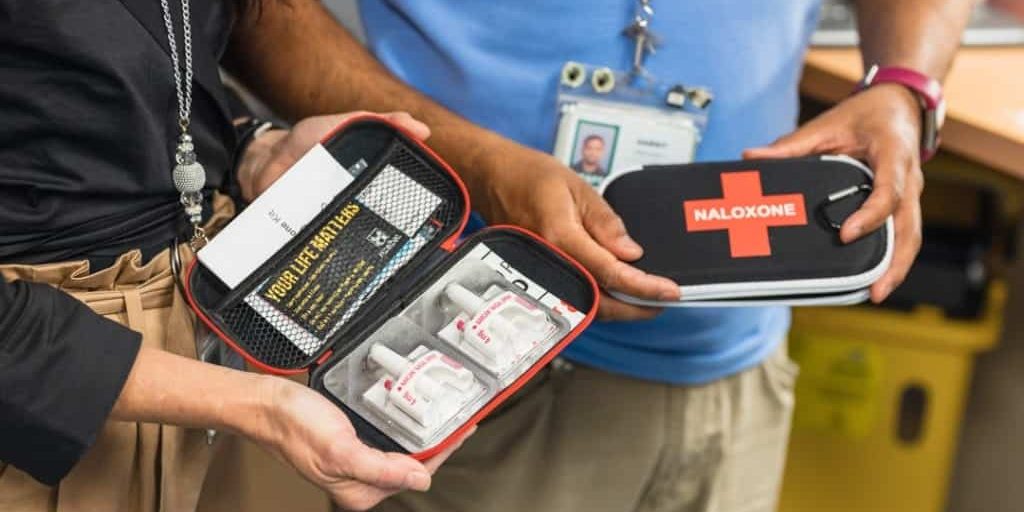Forced drug treatment not welcome in Mississauga if Brampton pushes for pilot, mayor says
Published October 11, 2024 at 11:49 am

Any forced drug treatment rules coming to Brampton won’t spill over into Mississauga or Caledon as mayors of both municipalities say closing the gap in voluntary treatment programs should come before any new plans roll out.
Mayor Patrick Brown is pushing the province to launch what he calls a “compassionate intervention” pilot program in Brampton that could see people suffering from chronic mental health conditions and addictions forced into involuntary treatment.
Brampton City Council passed a motion on Wednesday urging the province to consider the move but a similar call at the regional council level has been shot down, meaning if Brampton does move forward with the controversial plan it will do so without the backing of Mississauga, Caledon or the Region of Peel.
“I think what you’re doing, Patrick, is taking on some responsibility for things that the provincial government is failing on, and it’s good of you to do that but that’s not the right palace to be doing it,” said Mississauga Mayor Carolyn Parrish at a regional council meeting on Thursday.
Parrish instead says the provincial government needs to address what she called an “appalling” wait time for voluntary treatments that can take more than a year.
“Voluntary treatment should be available for everybody who wants it. You shouldn’t have to pay thousands of dollars to go to a private clinic,” Parrish said.
Brown had planned to put forward a motion to the region that would have seen Mississauga and Caledon added to Brampton’s request from the province. But concerns from councillors led to any mention of involuntary treatment being removed and the motion was changed to instead ask the region’s Health Services team to report back with research on similar forced treatment procedures in other jurisdictions.
It also calls on the province “to build action plans to address the addictions crisis” in Ontario by using “nationally identified best practices,” and to make more naloxone kits available throughout the community.
Despite the opposition in neighbouring municipalities, Brown said he hopes the pilot will get approval and wants any input “from any stakeholder who can help us make a framework that respects the personal, individual rights” of the patient.
“Certainly, I would never want to push other municipalities to go down a path you’re not ready to go down, yet,” Brown said of Brampton’s ask of the province.
“I hope it’s right. I hope Mayor Parrish won’t tell me six months from now ‘I told you so,'” he said.
Brown first floated the idea of involuntary treatment last week at a press conference following an election promise by B.C. Premier David Eby to introduce expanded involuntary treatment in that province for people with severe addiction issues, mental health challenges and brain injuries – a plan which civil liberty advocates say is a threat to basic human rights.
The Brampton mayor has another chance to get more backing for the proposal when a similar motion will go before the Ontario Big City Mayors Caucus later this month. His ask from the province would hinge on funding for more treatment beds in the city.
Regional staff say the average wait time to get into a voluntary treatment program is more than 12 months, nine months for psychotherapy, and two weeks for early psychology intervention.
Mississauga Coun. Natalie Hart said closing the wait time gap in voluntary treatment should be the province’s focus.
“We have to stop investing in the end game and start investing in the starting line. A year? I’m sorry, That is wildly inappropriate,” she said.
“If we want to write a letter to the premier we should be asking him to fund his existing obligations before we put another ask on the table, because we are woefully shortchanged, and that 12 months is something we should all be ashamed of collectively.”
Brown says the pilot could ease strain on Peel Regional Police officers, who are spending more time dealing with mental health and addictions-related calls.
Between January 2022 and June 2024, Peel police say officers attended over 18,000 overdoses with 328 fatalities.
Peel police launched its Mobile Crisis Rapid Response Team program to reduce the strain on officers and ensure calls involving mental health challenges or addictions are handled by the right resources.
Police have said there were 573 opioid-related emergency room visits to Peel hospitals last year and 147 opioid-related deaths. Officers have spent more than 30,000 hours waiting in hospital on mental health and addictions calls since 2022, police say.
Peel police launched its Mobile Crisis Rapid Response Team program to reduce the strain on officers and ensure calls involving mental health challenges or addictions are handled by the right resources.
In 2021, the region gave out some 20,000 naloxone kits, moving up to 90,000 distributed in 2023 with help from community partners.
INsauga's Editorial Standards and Policies